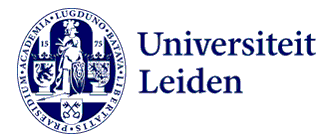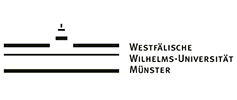Freedom of Expression and Hate Speech: When Values Collide in Divided Societies
DOI:
https://doi.org/10.31078/consrev821Keywords:
Freedom of Expression, Hate Speech, Kill-the-Farmer, Old Flag, Proportionality, SignageAbstract
One of the thorniest issues in law, especially concerning the boundaries of what is reasonable and proportionate, is the distinction between freedom of expression and hate speech. Striking a balance between freedom of expression and hate speech is, however, not a mere exercise in theory; it goes to the core of respect of individual rights and freedoms. To one person, uttering speech pursuant to the right to free expression is essential for a free and open democratic society; whereas another person, offended by what they perceive as hatred, can experience such speech as an attack on their identity and self-worth, causing harm, fear and anxiety that deny their individual rights to equality, identity and dignity. This paper gives a brief overview of jurisprudential developments in international law concerning speech that may fall within the category of hate speech, whereafter two prominent South African judgments by the Equality Court are discussed. Those two judgments highlight the complexities in determining when speech can be regarded as hate speech; what test is applied to ascertain whether speech constitutes hate speech; what evidence is required for a finding to be made; and the effect of a declaratory order. The two judgments discussed, the Nelson Mandela Trust and Ors v. AfriForum and Ors (Old Flag case 2019) and the AfriForum and Economic Freedom Fighters and Ors (Kill the Boer Case 2022), attempted to determine the line that separates freedom of expression from hate speech. The judgments, perhaps not unexpectedly, have given rise to more questions than answers. The inconsistency in comparative jurisprudence reaffirms that the labelling of speech as hate speech should be reserved for the most extreme forms of speech; it should be proportionate to the speech, including who expressed it, where and when; and any declaration should only be directed at the specific incident and not restrict speech in general.
References
AfriForum v. Economic Freedom Fighters and Others (EQ 04/2020), ZAGPJHC 599 (2022).
AfriForum Research Institute. “Farm Attacks and Farm Murders in South Africa.” Report, AfriForum Research Institute, 2020.
Amish Devgan v. Union of India, SCC OnLine SC 994 (2020).
Amnesty International. “Freedom of Expression.” Amnesty International. https:// www.amnesty.org/en/what-we-do/freedom-of-expression/.
Brown, A. “What Is Hate Speech? Part 1: The Myth of Hate.” Law and Philosophy 36 (2017).
Catch the Fire Ministries Inc v. Islamic Council of Victoria Inc, VSCA 284; 15 VR 207; 235 ALR 750 (2006).
De Varennes, F. “Minority Issues: Report of the Special Rapporteur on Minority Issues, Fernand de Varennes.” Report, United Nations, 2021.
De Villiers, B. “Flying a Flag for Freedom of Expression: When Does a Historic Symbol of a Minority Turn into Hate Speech? The Case of the Old Flag of South Africa.” In Navigating the Unknown – Essays on Selected Case Studies about the Rights of Minorities, 215–50. Leiden: Brill, 2022.
Delcker, J. “Germany’s Balancing Act: Fighting Online Hate While Protecting Free Speech.” Politico, published October 01, 2020. https://www.politico. eu/article/germany-hate-speech-internet-netzdg-controversial-legislation/.
Delport, D. “SA 19de Op Lys van Lande Met Ergste Georganiseerde Misdaad.” Netwerk24, published September 24, 2022. https://www.netwerk24. com/netwerk24/nuus/misdaad/sa-19de-op-lys-van-lande-met-ergste- georganiseerde-misdaad-20220923.
Duy, I.N. “The Limits to Free Speech on Social Media: On Two Recent Decisions of the Supreme Court of Norway.” Nordic Journal of Human Rights 38 (2020).
“Equality Act. Promotion of Equality and Prevention of Unfair Discrimination Act 4 of 2000.” Opened for signature February 2, 2000. https://www.justice. gov.za/legislation/acts/2000-004.pdf.
FA Picture International v. Central Board of Film Certification, AIR 2005 Bom 145 (2005).
Faurisson v. France Communication, No 550/93 (1996).
Gelber, K. “Political Culture, Flag Use and Freedom of Speech.” Political Studies 60 (2012).
Hagan v. Trustees of the Toowoomba Sports Ground Trust, FCA 1615 (2000).
Herz, M. and P. Molnar. The Content and Context of Hate Speech: Rethinking Regulation and Responses. Cambridge: Cambridge University Press, 2012.
Hogan Lovells. “The Global Regulation of Online Hate: A Survey of Applicable Laws.” Report, Hogan Lovells, 2020.
Nelson Mandela Trust and Ors v. AfriForum and Ors, EQ 02/18 (2019).
Perincek v. Switzerland App, No. 27510/08 (ECHR, 2015).
Portner Tom. “South Africans Hold Black Monday Protests Over Farm Murders.” Newsweek, published October 30, 2017. https://www.newsweek.com/ blackmonday-south-africans-protesting-murder-white-farmers-696441.
Pravasi Bhalai Sangathan v. Union of India and Ors., No. 157 (Supreme Court, 2014).
Qwelane v. South African Human Rights Commission and Another, ZACC 22 (2021).
R. v. Keegstra, 3 SCR 697 (1990).
Rao, P.V. “After Supreme Court Judgment, We Must Combat Hate Speech at Social and Political Levels.” The Leaflet, published December 8, 2020. https:// theleaflet.in/after-supreme-court-judgment-we-must-combat-hate-speech-at- social-and-political-levels/.
R.A.V. v. City of St. Paul, 505 U.S. 377 (1992).
Refah Partisi (the Welfare Party) and Others v. Turkey App, No. 41340/98 ECTHR 13 (2003).
Rosenfeld, M. “Hate Speech in Constitutional Jurisprudence: A Comparative Analysis.” Cardozo Law Review 24 (2003).
Sanchez v. France, 45581/15 (2021).
Saskatchewan (Human Rights Commission) v. Whatcott, 2013 SCC 11 (CanLII), 1 SCR 467 (2013).
Schweppe, J. and D. Walsh. Combating Racism and Xenophobia Through the Criminal Law. Limerick: Centre of Criminal Justice, 2008.
Snyder v. Phelps, 131 S. Ct. 1207 (US Supreme Court 2011).
Texas v. Johnson, 491 US 397 (1989).
The Federal Constitutional Court, Federal Constitutional Court (First Senate) 15 January 1958 BVerfGE 7, 198 (1958).
The Federal Constitutional Court, Order of the First Senate of 4 November 2009, 1 BvR 2150/08 (2009).
The Prosecutor v. Ferdinand Nahimana Jean-Bosco Barayagwiza Hassan Ngeze, ICTR 99-52-T (2003).
Tontodimamma, A. et. al. “Thirty Years of Research into Hate Speech: Topics of Interest and Their Evolution.” Scientometrics 126 (2021).
Topidi, K. “Words That Hurt (1): Normative and Institutional Considerations in the Regulation of Hate Speech in Europe.” Paper, SSRN, 2019.
UN Strategy Hate Speech. “UN Strategy and Plan of Action on Hate Speech.” Report, Geneva, 2019.
United States v. Schwimmer, 279 U. S. 644, 655 (US Supreme Court, 1929). Virginia v. Black, 538 U.S. 343 (2003).
































































